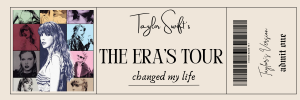Andrew Pippos’ Lucky’s: A Review By Rebekah Roma
He still had time to make changes. Not to his nickname, which he could never shake, and not to his appearance, and there was little prospect of changing the flaws in his character since the time had passed for great internal transformations, but Vasilis ‘Lucky’ Mallios supposed he could fix his own story—to be specific, how it ended.
So opens Andrew Pippos’ debut novel introducing the ironically-named protagonist, Lucky. In an epic saga sprawling from 1913 to 2002, from Ithaca to Sydney, from journalism to violent tragedy, Lucky and his associates navigate serendipity, love, loss, and hospitality in the family-owned Greek café: Lucky’s. Each chapter varies in perspective, timeline, and plot, stretching relevance to the brink before revealing the cataclysmic nature of the events to come, and implicating the character in a crime or a death. And so, on cavalcades Pippos’ Greek drama where temporal shifts become part of the cadence and larger-than-life elements of classic mythology are explored in authentic migrant experience. As with the classics, deception and fraud link the characters’ fates and shape their lives as they undertake their own Odysseys, attempting to determine who they are and where they fit in a land whose laws demand assimilation.
In an interview with the ABC, Pippos elucidated that much of the novel is drawn from his own experiences growing up in a Greek café. These American-style diners proliferated in the 80s and 90s, run by migrant families as they provided an apt business model to camouflage exoticism behind neon lights and black and white portraits of Elvis Presley. Lunch rushes of herculean proportions saw bacon and eggs adorn customers’ tables, while keftedes and dolmades sizzled out the back over talks about Odysseus and Penelope as if they were family. This casual treatment of legends accompanied by a beer and sausage roll sets the tone for Pippos’ novel that revels in the duality of Greek-Australian lives.
Lucky’s was nominated for the Miles Franklin prize in 2021, (awarded to books that capture Australian life in any of its forms) for its exposition of the migrant experience in 20th century Sydney in as gaudy and fluorescent a manner as the diners it describes. Between Benny Goodman impersonations and mopping the floor of the restaurant, Pippos peels away the facades we wear to hide the pain of failure and questions the validity of Australia’s white national identity when it has been sculpted by migrants wearing the mask of assimilation.
The absurdity of the plot and the godfather-esque scene involving a horse corpse in the middle of the dining room imbue the reader with the same sense of confusion and helplessness the characters feel as they strive for self-determination in the face of fate and chaos. The melodrama is undercut by the deeply disturbing grit of domestic abuse as the characters atone for the frauds they enacted to conceal their perceived inferiority. This is a saga as compelling and fantastical as Cerebus smoking a durry in each of his three mouths. Pippos has offered us a tasty morsel of Greek drama on a plate of social criticism as fresh and delectable as a tray of Baklava passed over the fence from the Yiayia next door.
Rebekah Roma is a writer and law student from Meanjin. She won the Allen&Unwin writer’s prize in 2021 and you can find her work in Verses Magazine, Scratch That, Butch is Not a Dirty Word, and more, at https://romarebekah.wixsite.com/romar.








